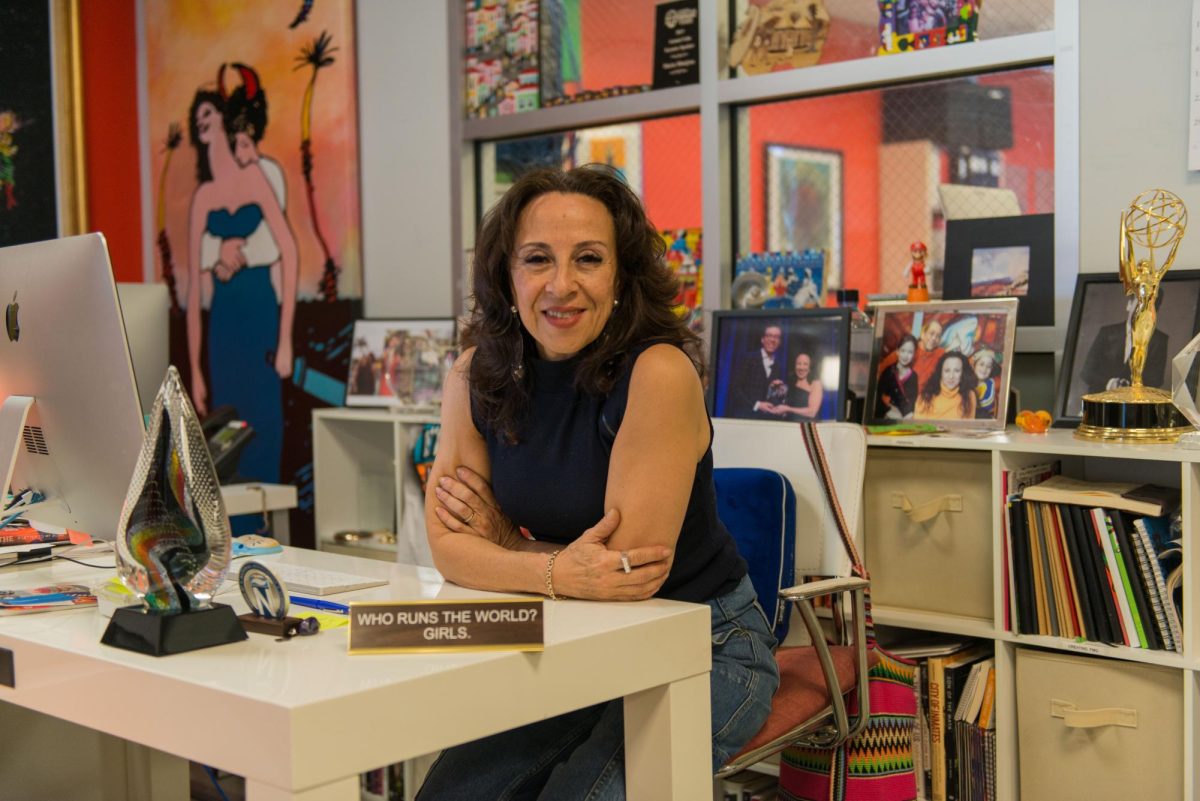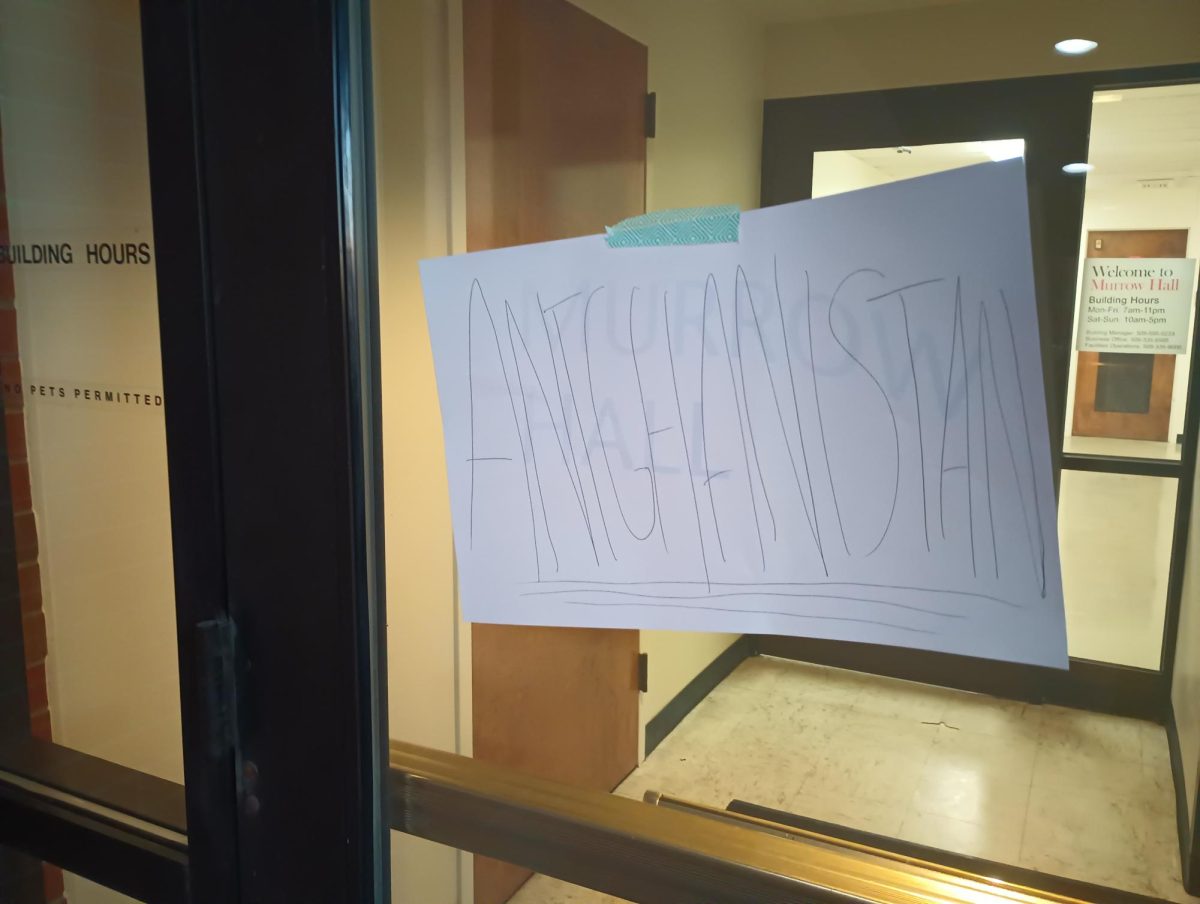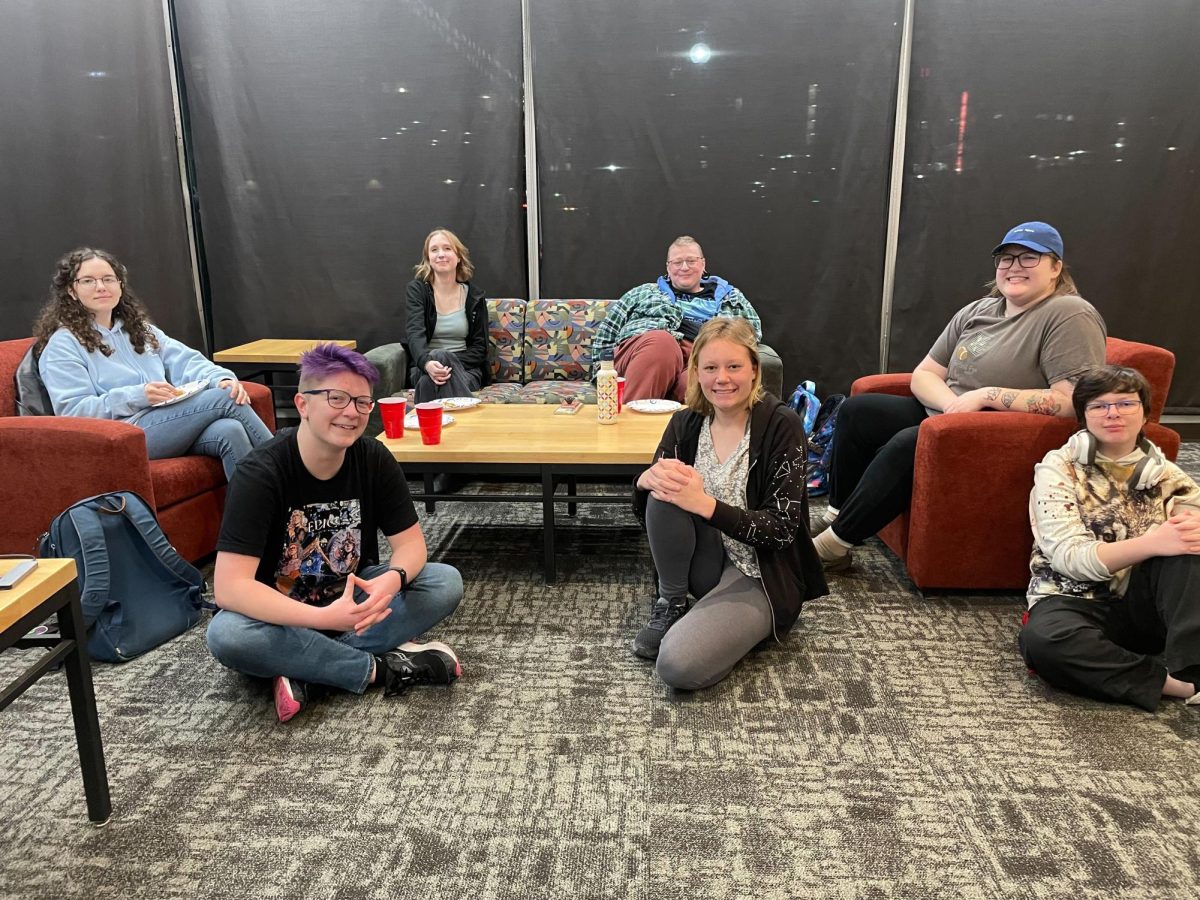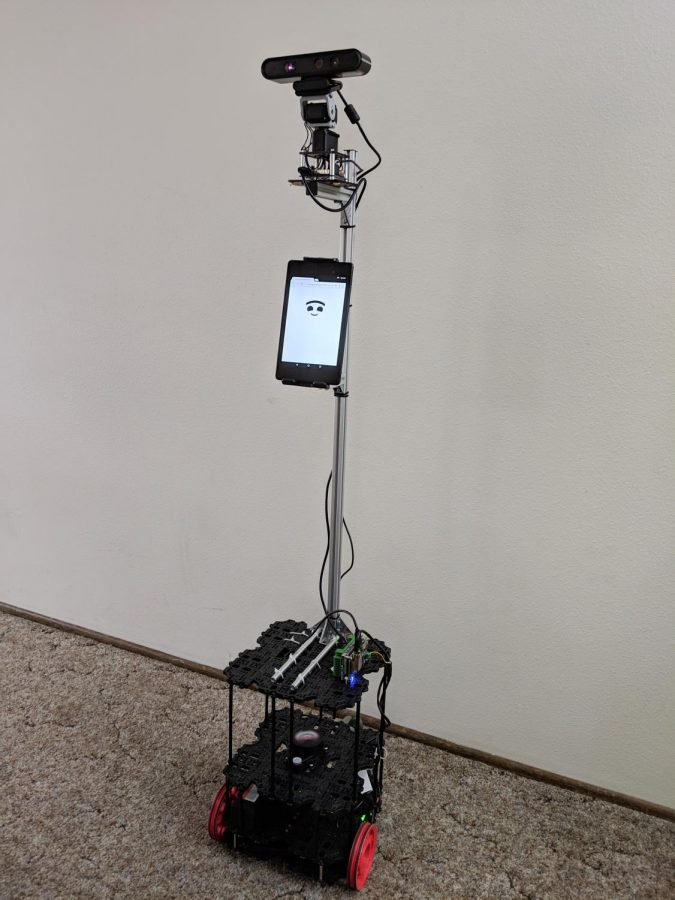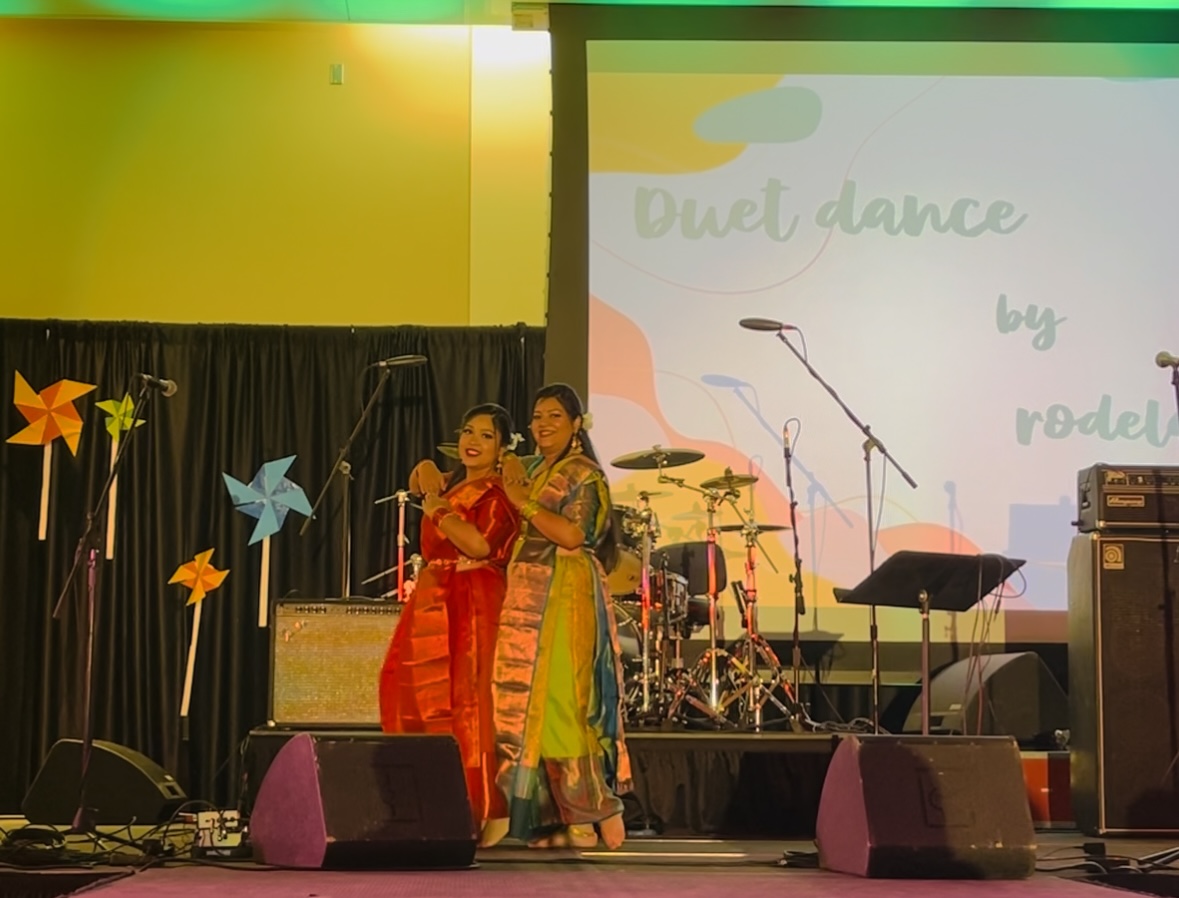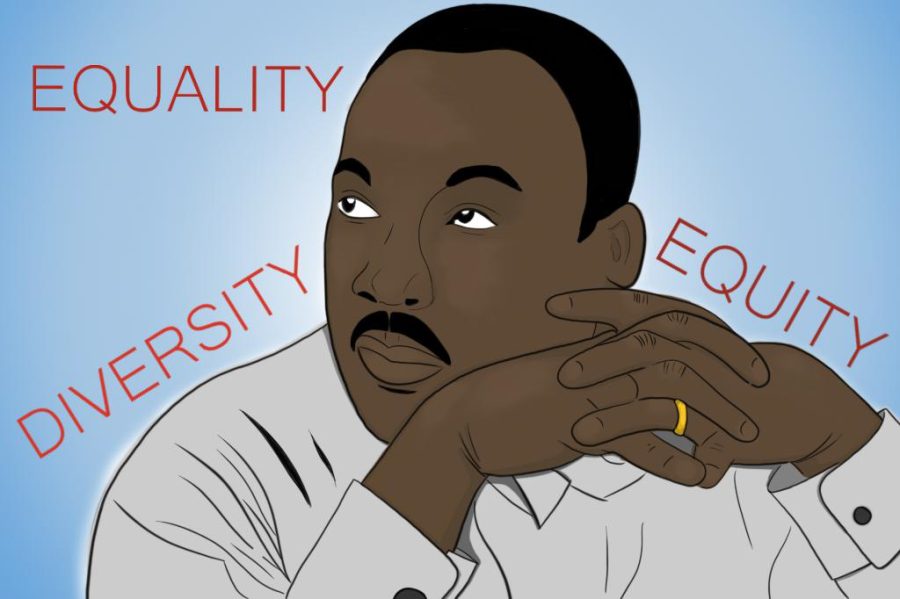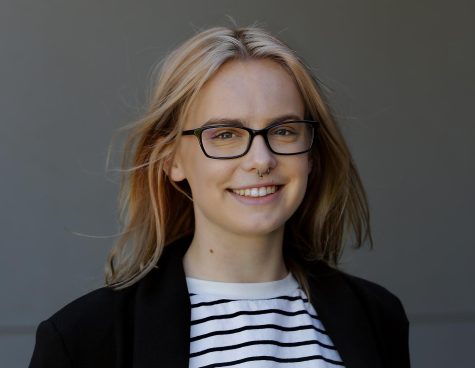The Edward R. Murrow Lifetime Achievement Award is given annually to journalists who will be remembered throughout the communication industry, and the Murrow College of Communications has honored these leaders at its annual Symposium since the ’90s.
This year, Maria Hinojosa, Futuro Media founder and Pulitzer Peabody Emmy award-winning journalist, will travel to Pullman to receive the award and give her keynote address on the first day of the Murrow Symposium on April 3.
Her first experience with journalism was in the late 1960s when she witnessed the Vietnam War on television and in newspapers. She said as a young girl, she would stand in the kitchen and watch the news close to the screen, trying to understand what she was seeing and what was happening in the world.
“I was fascinated by journalism,” she said. “I never thought I could be a journalist because there were no women journalists that were doing this work that I remember seeing, certainly no Latinas.”
It was not until she got to college at Columbia University that she started doing radio and realized she could be a part of the journalism field. Hinojosa said she was behind the microphone and did interviews, and had a weekly radio show with tens of thousands of listeners.
After realizing she could be involved with journalism on the radio, she became the first Latina hired at National Public Radio and remained fearless in her career as a Latina journalist, she said.
“I knew I wasn’t going to stay in one place at NPR, so I then became the first Latina correspondent at CNN, and then the first correspondent on PBS,” she said. “It is a job that I love, but I completely understand mission and why journalists do what we do.”
Hinojosa said this is why she calls Edward R. Murrow something of a godfather to her, as well as Frederick Douglass; both are heroes of journalism who made her believe she should continue with her career and not stop.
She started Futuro Media, a non-profit production company, in 2010 when people were not thinking about the podcasting world, so the form of media was still getting into the sphere of things, she said. Latino USA is the longest Latino-focused program in U.S. media and is produced by Futuro Media.
Hinojosa said she was looking for a job at the time, and people suggested she run her own organization; she questioned her ability to run a production company because she was a journalist and an immigrant, so she never thought of running her own organization.
But, she ended up starting the organization in the middle of an economic depression, she said. It was clear to her that reporting about the communities going through a demographic change would be great journalism that year, especially because data showed the Latino population grew by 43% in the decade leading up to this.
“That was something where I said I have to be doing this kind of journalism that is helping us and the rest of the country understand how we’re changing and take over Latino USA,” she said. “We started small and we’ve evolved … into winning the top awards in American journalism.”
Her job as a journalist has always been to report on stories, even the ones people do not see right in front of their faces, she said.
Hinojosa said a story she worked on that has stuck with her throughout her career was from when she was in a rainforest jungle in Columbia, right on the border of Panama where migrants and refugees have to traverse the wettest rainforest in the world to cross the border and go through Central America.
A lot of people see these migrants and refugees as human traffickers and smugglers, which is a problem, she said.
“Having slept outside in the middle of nowhere with dozens of men and women and feeling safe and waking up and seeing them at four in the morning after it rained all night, and all they had over their heads was a plastic garbage bag tarp,” she said. “They are up at four in the morning to get up and go and climb that jungle mountain. Who wouldn’t want them in our country?”
The migrants and refugees she was with would build a skyscraper if asked because they want to and are capable of it, she said.
“They’re incredible,” she said. “That is a story that forever changed my life.”
Bruce Pinkleton, Murrow College dean, said every year, the college discusses potential recipients for the award; the idea is to recognize a journalist whose work reflects Murrow’s legacy in one way or another.
There is a process of elimination and sometimes, they find someone who might be a good recipient for the next year as well. Pinkleton said there is a qualitative nature to every journalist they discuss.
As they have those discussions about the award recipient, they look for someone who not only reflects the legacy and standards of Murrow, but also impacts the field and the new directions they provide, he said.
Pinkleton said Hinojosa is an outstanding recipient, and he was aware of her work as a journalist before a Board of Regents member recommended her to Pinkleton.
There is usually a short list of potential award recipients, and once Hinojosa was in Pinkleton’s line of sight, she shot to the top of the list, he said.
“She’s one of a couple of finalists we considered pretty seriously for this year,” he said. “She’s won four Emmys, which is quite remarkable.”
Pinkleton said it is also remarkable knowing Hinojosa founded Futuro Media group; her Pulitzer Prize-winning podcast stuck out to him as well because it was like a good book he could not put down.
“The Murrow name has such tremendous respect and is valued so highly among journalists that … people are quite honored,” he said. “Maria told me that she was reading my letter of invitation, she had tears in her eyes. It strikes a chord with people to say that your work is consistent with the work of Dr. Murrow in our eyes.”
Hinojosa said Murrow is a huge example of being a journalist and the way he approached journalism allowed her to understand the role.
“I want to make Edward R. Murrow proud,” she said. “He wouldn’t want to just go and receive an award, he’d want to go deep reporting, so when I’m not involved with any of the official celebrations and celebrations and presentations to students, I hope to be out on the ground reporting.”
Pinkleton said besides her record as a journalist, which stands out on its own, Hinojosa has done a great job in finding stories other journalists overlook in inner cities and urban areas, and stories other journalists do not tell.
“That really became part of our theme for Symposium this year, and for me personally, that was powerful,” he said. “I thought the fact that she was really out there early in her career, looking for the stories that other people weren’t finding, that really made her an outstanding journalist.”
When Hinojosa found out she was receiving the award, she was shocked because she was in line with these other journalists, she said.
Hinojosa said she took a step back and told herself she deserved it, and received a lot of love when she announced she was receiving the award.
“I’m so honored and I hope to inspire other young journalists,” she said. “Getting this recognition, I’m just really humbled and honored.”

